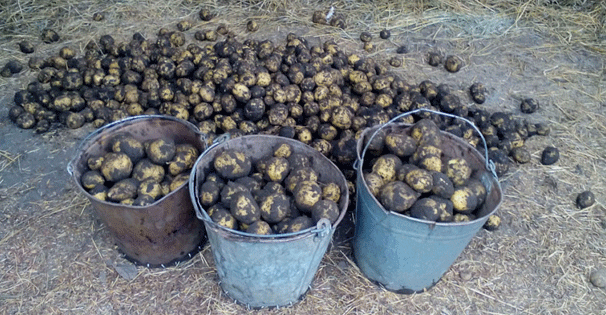In September 2024, Russia’s Federal Service for Veterinary and Phytosanitary Surveillance (Rosselkhoznadzor) conducted a series of inspections in the Mukhorshibirsky district of the Republic of Buryatia, specifically targeting potato and carrot crops. Out of the 17 samples collected for laboratory testing at the Federal State Budgetary Institution “Center for Grain Quality Assessment” in Moscow, disturbing results surfaced: five potato samples showed elevated levels of difenoconazole, a fungicide commonly used to control fungal diseases in crops.
Elevated Pesticide Levels and Health Risks
The test results indicated that difenoconazole concentrations ranged from 0.028 to 0.038 mg/kg, surpassing the maximum permissible concentration (MPC) of 0.02 mg/kg. Such excessive pesticide residues raise significant concerns about food safety, as chronic exposure to high levels of pesticides can lead to a variety of health issues, including endocrine disruption, reproductive problems, and an increased risk of cancer.
Difenoconazole, while effective in combating fungal pathogens, poses toxicological risks when ingested in excessive quantities. According to recent studies, long-term exposure to elevated levels of this pesticide has been linked to liver and thyroid toxicity in both humans and animals. The findings in Buryatia highlight the critical need for rigorous pesticide management practices to ensure public health is not compromised.
Nitrate Contamination: A Double Threat
In addition to pesticide contamination, the analysis also detected harmful levels of nitrates in the potato crops. Nitrates, while essential in small quantities for plant growth, can become harmful when present in high concentrations. When consumed, nitrates can convert into nitrites in the body, which can interfere with oxygen transport in the blood and lead to conditions such as methemoglobinemia, or “blue baby syndrome,” especially in infants.
The overuse of nitrogen-based fertilizers, combined with poor crop management practices, is often to blame for such nitrate contamination. Excessive nitrogen fertilization not only poses risks to human health but also degrades soil quality, reduces biodiversity, and contributes to water pollution.
Agricultural Implications and Solutions
The findings from Buryatia reflect broader challenges faced by many agricultural regions: balancing the need to protect crops from pests and diseases while ensuring food safety and environmental sustainability. As pesticide use continues to rise globally, incidents like this reinforce the importance of integrated pest management (IPM) strategies, which emphasize the use of biological controls, crop rotation, and precision agriculture techniques to minimize chemical input.
For farmers, agronomists, and agricultural engineers, adopting sustainable practices, such as reducing chemical dependence and enhancing soil health, is paramount. Improved monitoring and adherence to stricter pesticide regulations can help reduce the risk of harmful residues entering the food chain.
The discovery of harmful levels of pesticides and nitrates in Buryatia’s potato harvest serves as a stark reminder of the delicate balance required in modern agriculture. While pesticides like difenoconazole play a role in protecting crops, their misuse or over-application can pose serious health risks. Moving forward, stricter oversight, better pesticide management, and a commitment to sustainable agricultural practices will be essential to ensuring the safety of both consumers and the environment.







